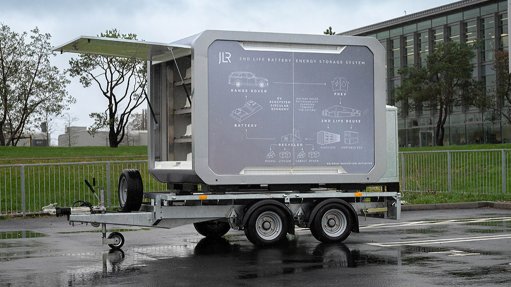Sars-CoV-2 tariffs
The headline might lead you to believe that it relates to the South African Revenue Service, or Sars. Sars-CoV-2, however, refers to a virus – the Severe Acute Respiratory Syndrome Coronavirus 2.
This is the virus that causes Covid-19, with the ‘co’ in ‘Covid-19’ standing for corona, the ‘vi’ for virus, the ‘d’ for disease, and the ‘19’, for 2019, the year the disease was discovered. As for its family tree, the Covid-19 virus is a new virus linked to the same family of viruses as Sars and some types of common cold.
According to the World Health Organisation (WHO), viruses and the diseases they cause often have different names. Take, for instance, HIV, which causes the Acquired Immune Deficiency Syndrome, or Aids. More often than not, we know the name of the disease, but not the name of the virus that causes it. The WHO points out that there are different processes, and purposes, for naming viruses and diseases. Viruses are named based on their genetic structure to facilitate the development of diagnostic tests, vaccines and medicines, while diseases are named to enable discussion on disease prevention, spread, transmissibility, severity and treatment. It’s all very confusing, and divisive as well, as Melinda Gates once said: “This pandemic has magnified every existing inequality in our society – like systemic racism, gender inequality and poverty.”
This brings us to the World Trade Organisation (WTO), which, on October 8, released two papers – or information notes, as the organisation calls them – on vaccine input tariffs and the bottlenecks relating to the manufacture of critical Covid-19 vaccines.
The first information note, which focuses on Covid-19 vaccine production and tariffs on vaccine inputs, is based on the Joint Indicative List of Critical Covid-19 Vaccine Inputs for Consultation. The paper explores the Most Favoured Nation (MFN) tariffs and imports of these products by the 27 top vaccine- manufacturing economies in order to identify possible ‘sensitive’ or choke points. Any product group with an average tariff of at least 5% ad valorem is deemed a possible choke point. The paper concludes that tariffs on critical products to manufacture vaccines remain high, especially in some developing countries, which may impede the flow across borders and/or increase the cost of vaccine manufacturing. It calls for WTO members’ cooperation to support the elimination and/or significant reduction of tariffs on these vaccine inputs to reduce costs and expand output from vaccine manufacturers to meet acute global needs.
The second informatuon note updates the Indicative List of Trade-Related Bottlenecks and Trade-facilitating Measures on Critical Products to Combat Covid-19, first published on July 20. It is based on issues identified and suggestions made by stakeholders at various events and consultations convened by the WTO, as well as by vaccine manufacturers in meetings organised by the Multilateral Leaders Task Force on Covid-19.
A key theme that emerges from the paper is that essential goods and inputs need to flow efficiently and expeditiously to support the rapid scaling up of global Covid-19 vaccine production capacity. As manufacturers scale up production and establish new sites in different countries, the production network is not only becoming bigger, but also increasingly complex and international. Since the delay of a single component may significantly slow down or even bring to a halt vaccine manufacturing, it follows that inputs must flow expeditiously, and each node within the supply chain network must operate seamlessly with the others.
The Indicative List of Trade-Related Bottlenecks and Trade-Facilitating Measures on Critical Products to Combat Covid-19, intended to be a “living document”, can be downloaded from the WTO’s website. In conjunction with this paper, the WTO issued an infographic titled ‘The Global Race to Vaccinate’, which illustrates the various steps involved in vaccination after manufacture.
In these troubling times, Stay Alert! Control the Virus! Save Lives!
Comments
Press Office
Announcements
What's On
Subscribe to improve your user experience...
Option 1 (equivalent of R125 a month):
Receive a weekly copy of Creamer Media's Engineering News & Mining Weekly magazine
(print copy for those in South Africa and e-magazine for those outside of South Africa)
Receive daily email newsletters
Access to full search results
Access archive of magazine back copies
Access to Projects in Progress
Access to ONE Research Report of your choice in PDF format
Option 2 (equivalent of R375 a month):
All benefits from Option 1
PLUS
Access to Creamer Media's Research Channel Africa for ALL Research Reports, in PDF format, on various industrial and mining sectors
including Electricity; Water; Energy Transition; Hydrogen; Roads, Rail and Ports; Coal; Gold; Platinum; Battery Metals; etc.
Already a subscriber?
Forgotten your password?
Receive weekly copy of Creamer Media's Engineering News & Mining Weekly magazine (print copy for those in South Africa and e-magazine for those outside of South Africa)
➕
Recieve daily email newsletters
➕
Access to full search results
➕
Access archive of magazine back copies
➕
Access to Projects in Progress
➕
Access to ONE Research Report of your choice in PDF format
RESEARCH CHANNEL AFRICA
R4500 (equivalent of R375 a month)
SUBSCRIBEAll benefits from Option 1
➕
Access to Creamer Media's Research Channel Africa for ALL Research Reports on various industrial and mining sectors, in PDF format, including on:
Electricity
➕
Water
➕
Energy Transition
➕
Hydrogen
➕
Roads, Rail and Ports
➕
Coal
➕
Gold
➕
Platinum
➕
Battery Metals
➕
etc.
Receive all benefits from Option 1 or Option 2 delivered to numerous people at your company
➕
Multiple User names and Passwords for simultaneous log-ins
➕
Intranet integration access to all in your organisation


















